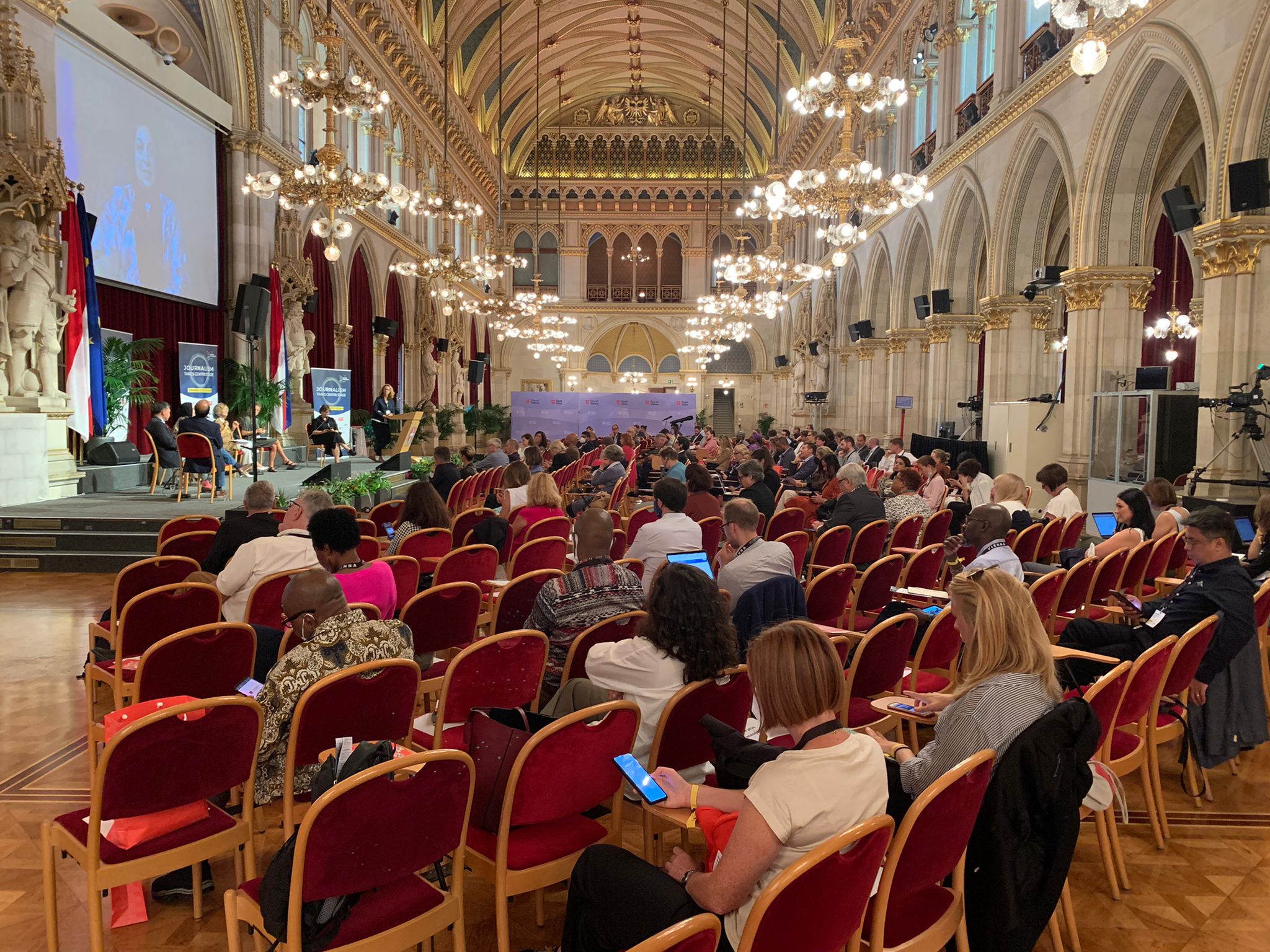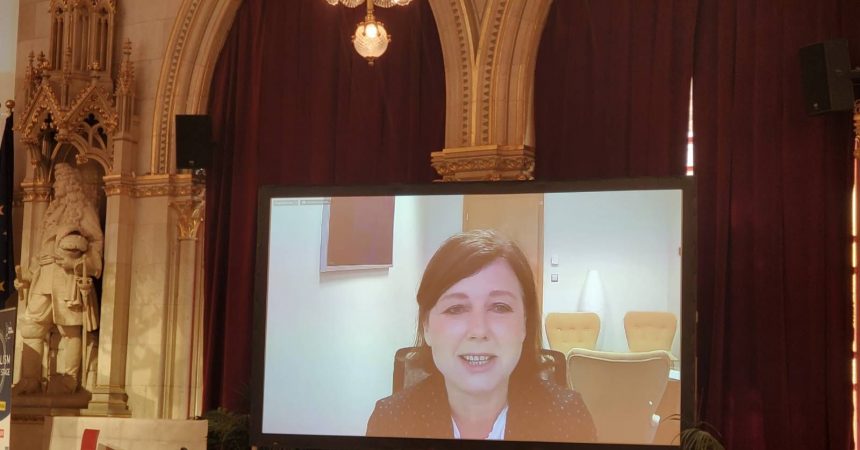Vice-President of the EU Commission for Values and Transparency Věra Jourová’s address on the last day of the International Press Institute’s World Congress referred to Daphne Caruana Galizia’s assassination and highlighted the serious threats she and other journalists investigating crime and corruption face on a constant basis.
In a brief question and answer session, Jourová said that “media and freedom of speech are indispensable if we want democracy in the EU”.
“The sector has been under constant threat and conditions are steadily deteriorating, which is why we adopted a resolution to improve journalists’ working conditions,” Jourová said, referring to the Commission’s latest recommendation to member states regarding action to be taken to curb abuses and crimes committed against journalists.
“We have statistical figures showing that journalists have had more than 900 physical attacks during demonstrations, online, or on their property. Women journalists in particular are under permanent threat,” Jourová added.
Pleased to join @globalfreemedia’s World Congress #IPIWoCo 2021.
⁰
I discussed EU initiatives to protect #MediaFreedom, in particular our new recommendations to improve the safety of journalists.
⁰
The EU should lead these efforts on the global stage. pic.twitter.com/p2eaj13ieI— Věra Jourová (@VeraJourova) September 17, 2021
The Vice-President also stressed the fact that assassinated journalist Daphne Caruana Galizia was facing 47 libel suits by the time she was killed, pointing out that the Caruana Galizia family is still forced to “invest time and money” to deal with the suits almost four years after her death.
The Commission’s recommendation, while not a binding measure, is meant to push member states to “vigorously prosecute any crimes against journalists” and improve coordination between law enforcement bodies and media houses on an international level.
She also spoke of the need for independent financial, psychological and digital services to support journalists, in particular those being targeted by international organised crime networks across the globe.
OSCE (Organisation for Security and Cooperation in Europe) Representative for Media Freedom Teresa Ribeiro, speaking at a town hall discussion as part of the Congress’ proceedings, argued that one of the main issues faced by journalists across the world is a wave of public distrust fueled by politicians who label dissenting outlets as fake news.
“These are the contradictory dynamics that have allowed this situation to occur, and they must be addressed,” she said.

International Press Institute World Congress 2021 in Vienna
Ribeiro said that in spite of OSCE’s efforts to establish support networks for journalists, the organisation on its own has its limitations.
“The main problems we face is with enforcement; the kind of mechanisms we have to make states comply are very fragile. We need to concentrate and focus on this because we really need to push for international mechanisms to allow us to fully follow-up and implement the changes that are needed,” she said.
The town hall discussion featured commentary from the CEO and Founder of Russian outlet Meduza, Galina Timchenko, and CEO of the Philippine online news site, Rappler, Maria Ressa. Timchenko explained that Meduza has been declared a foreign agent by the Russian government, while Ressa spoke of how she was facing at least ten arrest warrants filed by the government of the Philippines.
The Shift News founder and managing editor Caroline Muscat yesterday gave a presentation to the IPI World Congress about the website’s in-depth investigation into the secret online Labour hate groups that were used to dehumanise and demonise assassinated journalist Daphne Caruana Galizia in the years leading up to her killing and beyond.
Reporting from the International Press Institute’s World Congress in Vienna.














